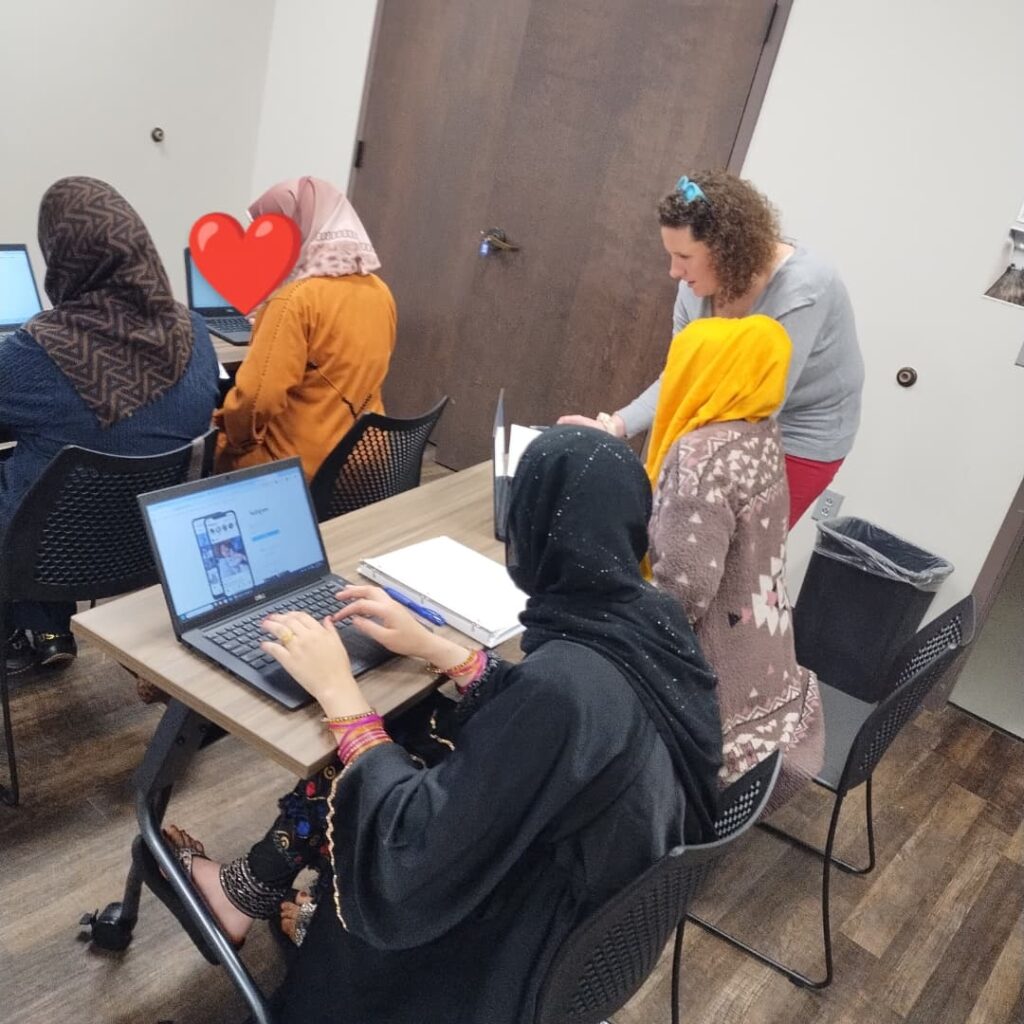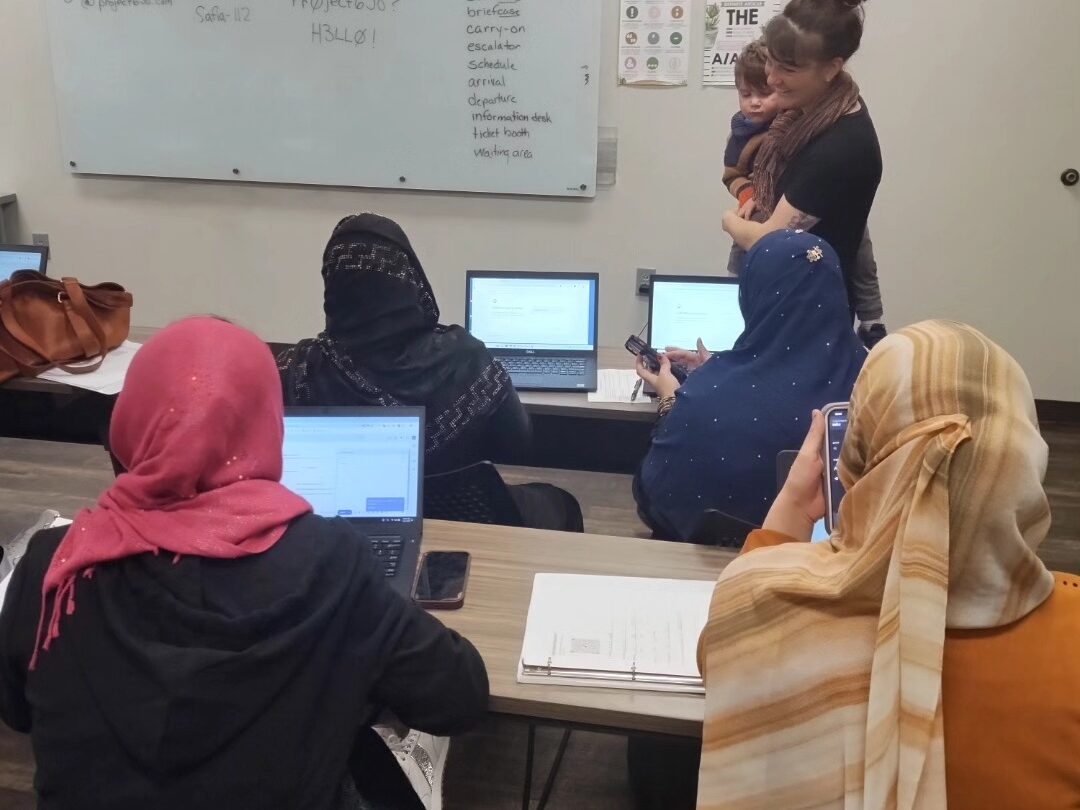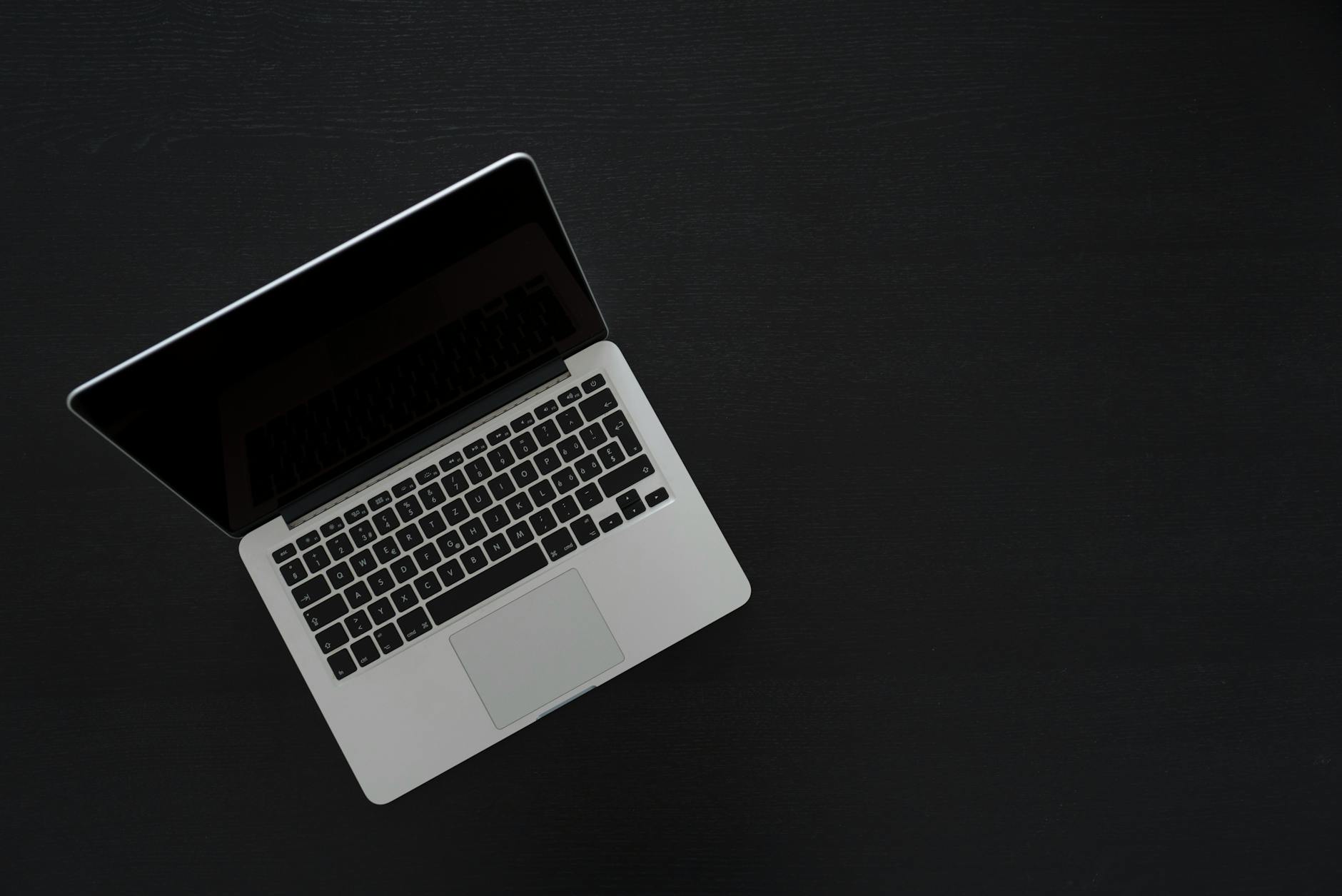Our first digital literacy class for refugee women was a big event. The women came into the classroom, chose a computer and sat down. They opened up the laptops (donated from a partnership between the Center for Digital Equity and Johnson C. Smith University) and were immediately confronted with a device password prompt. I’d written out the passwords so everyone had it at their fingertips. “Type it in, then hit enter,” I instructed, ready to jump into our first project. 1 minute went by. Then two. Then five. “Teacher, I need help,” was the refrain that echoed around the room.

I walked over to the first student to see what the issue was. “I’ve typed and typed,” she said. “It doesn’t work.” I clicked on the eye icon to see what she had typed and quickly realized where her mistakes were. After making a circuit of the room, I discovered a fundamental knowledge gap faced by my students – they’d never ever used a real computer keyboard. They didn’t know how to use the shift key to make capital letters or special characters. For a few, they didn’t even know HOW to find the special characters on the keyboard. My whole lesson plan for the day had to be tossed as I quickly recalibrated to teach keyboard skills.
For those of us who have grown up using computers, there are so many skills that we just take for granted. Using the shift key is one. But there are more! Pressing the enter key to get to a new line. Realizing that capslock has been left on. Learning to use the space bar. The touchpad. Navigating the long form of legalese that you’re confronted with when trying to open a new email account. Dealing with pop-up forms. Typing in a new password in two SEPARATE spots. And this is just the tip of the iceberg. There were so many learning challenges that we faced that day.
For those of us who have grown up using computers, there are so many skills that we just take for granted.
But we learned together. After class number 4, almost everyone can now type in that initial password successfully. Almost everyone knows how to get to their email account. Almost everyone has learned the words “click,” “tab” and “search bar”. My amazing refugee students didn’t give up, even though they all agreed that the first class was, “very hard!” As one student later told me, “I never used a computer in Afghanistan.” I’m excited about what’s ahead for them. Maybe this first set of classes won’t accomplish quite as much as I originally planned, but it’s a beginning. And it won’t be long (if we can keep funding, get more teachers, and find more space) before these women will learn to build websites, write basic code, and make their OWN mark on the digital world that surrounds them. We just had to get through that first password.



